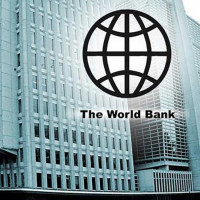- Thursday, 13 November 2025
Khadka struggles to meet growing demand of organic fertiliser
By Hari Prasad Koirala,Urlabari, Nov. 21: Rajib Khadka from Urlabari-9, Morang, is facing a challenge he never anticipated: high demand for his organic fertiliser.
Khadka, who returned to Nepal after working abroad for 16 years, started his organic fertiliser business 15 months ago.
Despite his growing success, he is struggling to keep up with the market’s increasing needs.
After receiving support from municipalities in publicity and promotion of his products, Khadka is now busy loading the fertiliser into trucks and sending it to various agricultural cooperatives for sale.
Khadka, who returned to Nepal in 2019, initially registered his own agricultural business and started raising cows and goats.
Having worked in Dubai, Qatar, and Kuwait for 16 years, Khadka had even migrated abroad with his wife and children.
Earning Rs. 650,000 a month, Khadka felt the urge to apply the skills he had acquired in Dubai and return to Nepal, driven by a desire to contribute locally.
Khadka, who passed the Health Safety and Environment (HSE) exam in Dubai, left his well-paying job with dreams of raising livestock and producing organic fertiliser in Nepal.
He invested all the money he had earned into raising cows and goats.
His business, which started in 2020, struggled even to recover the investment.
No matter how much effort he put in, income and expenses balanced out. Even now, Khadka’s farm houses 56 Boer goats, six cows, and 16 calves.
After struggling to make a profit from animal husbandry, Khadka began producing organic fertiliser using cow dung, goat manure, and chicken droppings.
So far, Rs. 15 million has been spent on the fertiliser industry, which began 15 months ago.
The Agriculture Education Centre, Morang under the Ministry of Agriculture of Koshi Province, has provided a grant of Rs. 5 million, while Khadka has managed the remaining expenses himself.
He stated that the organic fertiliser has yielded satisfactory results.
Currently, 1,500 kg of fertiliser is being produced daily. Khadka explained that the encouragement from farmers using the fertiliser has motivated him to invest further.
The fertiliser is currently being sold at Rs. 38 per kg, though Khadka believes it can be sold for Rs. 30 with the purchase of a crushing machine, which costs Rs. 2.5 million.
After the local government of Koshi Province signed an agreement to purchase organic fertiliser through a cooperative, Khadka now works 19 hours a day in the industry.
He said there are 15 workers employed. “We, the couple, also work alongside them. One of the workers is an Indian agricultural technician.”
In the past month, Khadka sent fertiliser to various districts in Jhapa, Morang, Sunsari, and Madhes Province.
This fertiliser, which has the potential to replace chemical fertilisers in nurseries, vegetable farms, and fruit orchards within a year, has been proven to contain nitrogen 2, potassium 2.78, phosphorus 3, organic carbon 21 per cent, and a pH level of 7.7.
This granular fertiliser is made from a mixture of cow dung, manure, and 12 other elements.
Khadka became interested in agriculture through his connections with agricultural scientists from Mumbai while living in Dubai and Kuwait.
He said, “When I came home and began building a cowshed, many people praised my efforts, while others were indifferent. However, I am determined to fulfil the dream I brought with me to Nepal.”
If the raw materials can be supplied, Khadka believes it would be possible to produce 15,000 kg of fertiliser daily.
However, at present, an average of 2,000 kg of fertiliser is being produced.
He regretted that the fertilizer has not yet reached farmers growing bananas, dragon fruits, or those involved in nurseries and vegetable farming.
The investment needed to produce fertiliser for crops like rice, maize, and mustard is still significant.
He added that if the government invests in organic fertiliser production, it could replace subsidies for chemical fertilizers within five years.






-original-thumb.jpg)

-square-thumb.jpg)





-original-thumb.jpg)

